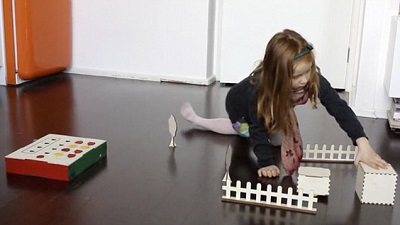Talk about planning ahead! Children as young as SIX spontaneously practice skills to prepare for the future
From tying shoelaces to reading and writing, practice is essential for improving a wide range of skills.
And a new study suggests that from age six, children spontaneously practice skills to prepare for the future.
The findings suggest that it may be beneficial for parents to start having conversations with children as young as six about their future goals, and encourage them to think about and work toward those goals according to Daily mail.
Researchers looked at the development of deliberate practice.
Melissa Brinums, lead author of the study, said: ‘Our study contributes to our understanding of how young children start to regulate their own learning to achieve their long-term goals, as well as the development of the cognitive processes that allow people to acquire a range of general skills and highly specialised expertise throughout life.
‘It is one of only a small number of studies documenting age-related differences in children’s future-oriented behaviour beyond the preschool period.’
In the study, the researchers tested 120 children aged four to seven.
In one room, children were shown three games, and were told they would be tested on one of them (the ‘target game’), winning stickers based on their performance.
The children were then brought to a different room with replicas of the games they had seen in the first room and told they had five minutes to play before returning to the first room for the test.
The researchers anticipated that children who understood that practice could help their performance would spend more time playing the target game than the other two games.
After playing, children were asked which game they played the longest and why, what they could do to improve on the games, and if they could explain what practice is.
Results showed that most six and seven-year-olds knew what practice was, and that it helped improve their skills
Most children from this age group played the target game longer than the others, and said they did so to prepare for the test.
Five-year-olds showed a basic understanding of practice, and spent slightly longer playing the target game.
But when asked why they had chosen to play that game, the five-year-olds said they did so for reasons other than practice.
Finally, most four-year-olds didn’t understand the concept of practice, and didn’t spend more time playing the target game.
The findings show clear improvements in children’s deliberate practice from ages four to seven.
The researchers suggest that these improvements may be due to age-related improvements in cognitive capabilities.
Kana Imuta, co-author of the study, added: ‘By providing insight into children’s understanding of practice and the age at which they start to practice for the future with and without prompting, our study may help caregivers and teachers structure age-appropriate learning activities for children.
‘For example, our findings suggest that it may be beneficial to start having conversations with children as young as six about their future goals, and encourage them to think about and work toward those goals.
‘A focus on the future may help kids understand why practising is so important.
N.H.Kh

